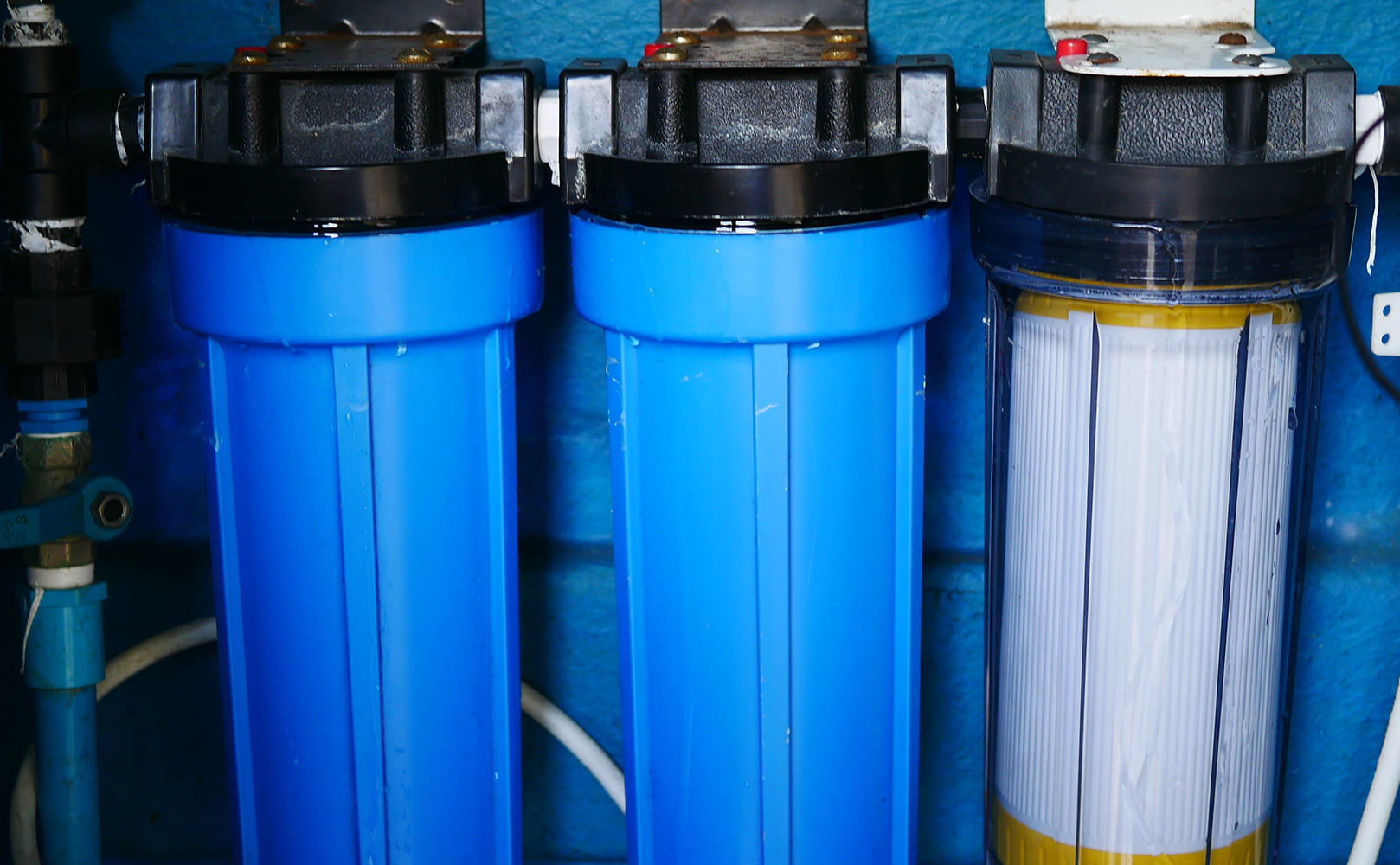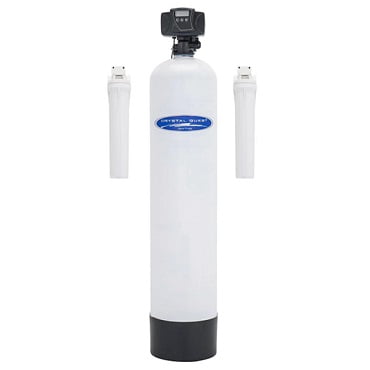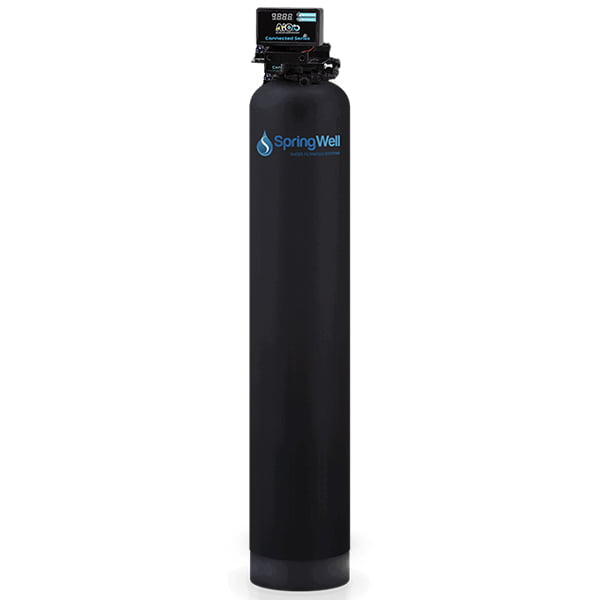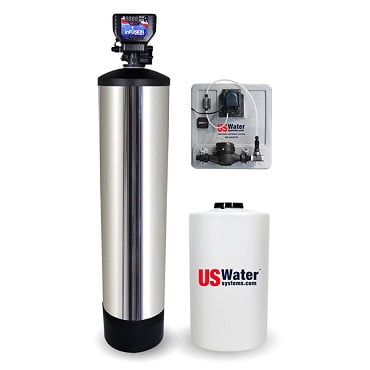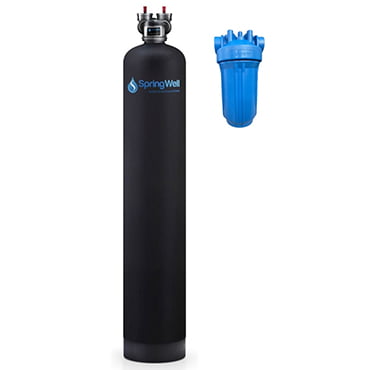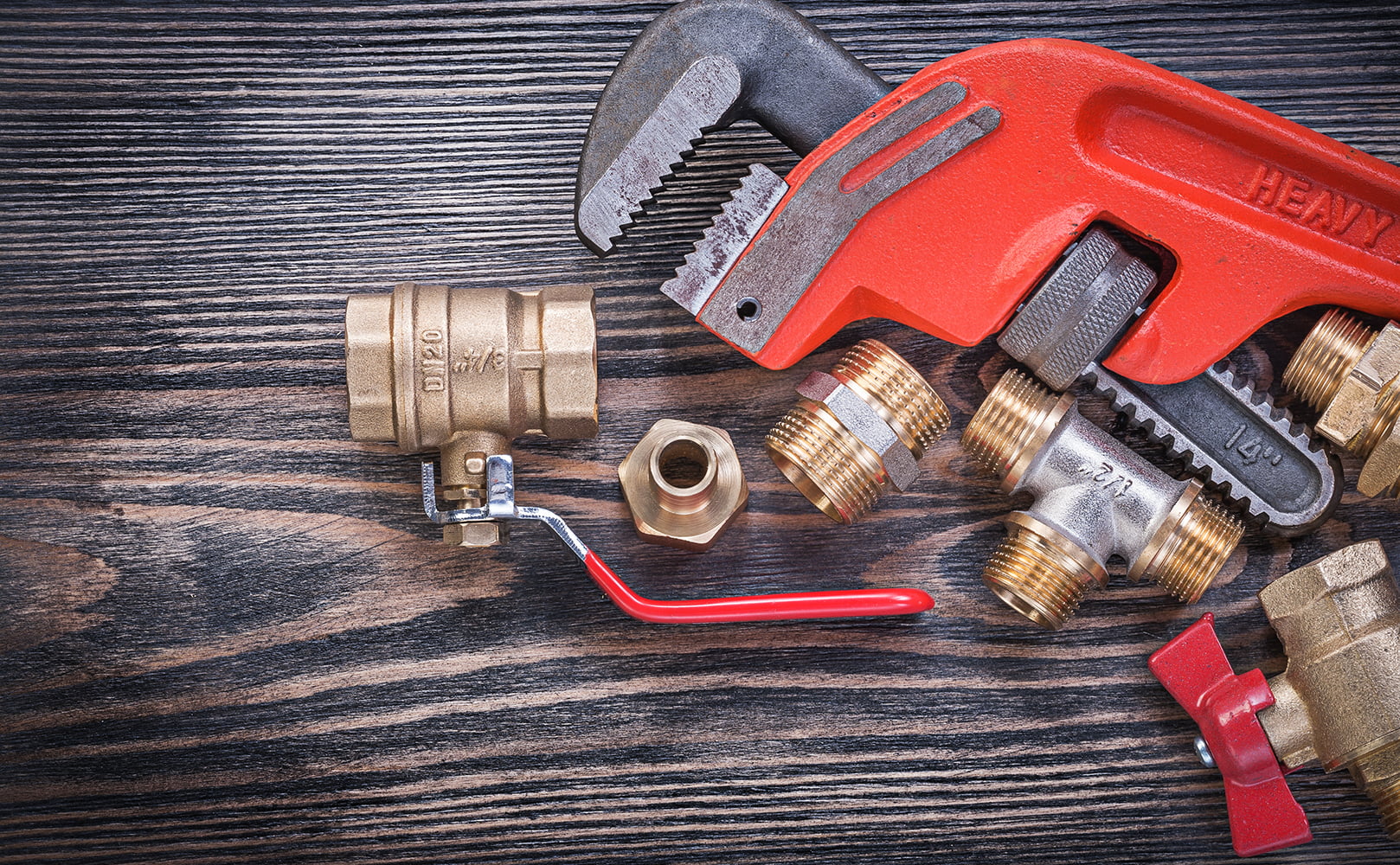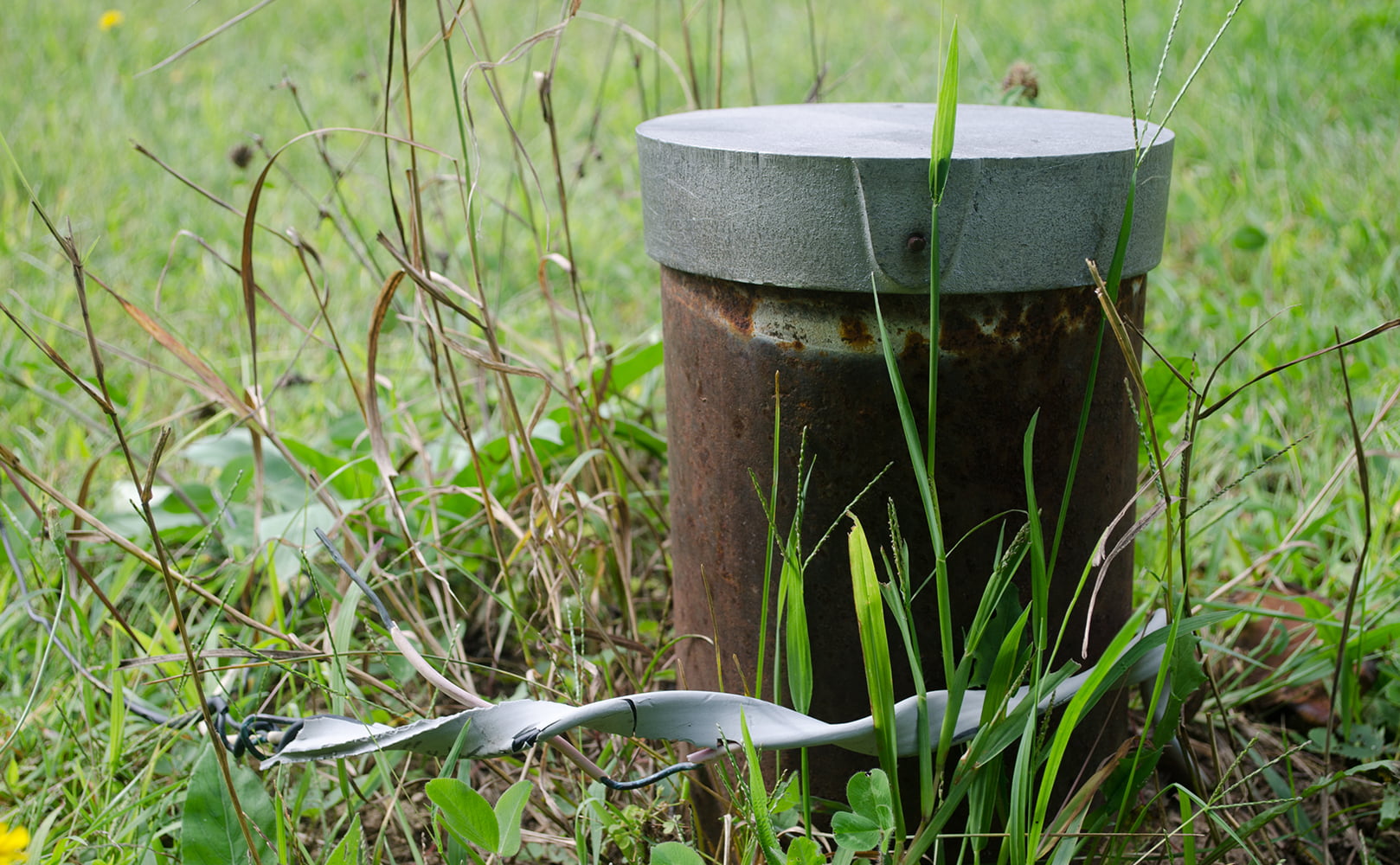Well Water Filtration System Cost 2023 – How Much?!
Written by: Alexandra Uta // Last Updated: Aug 17, 2023
This page may contain affiliate links. If you buy a product or service through such a link we earn a commission at no extra cost to you. Learn more.
If you own a private well, you may wonder how much it will cost to add a well water filtration system to your home.
There is no one answer to this because the costs depend on several factors.
Let’s take a closer look at several products and other things that will impact the cost of a well water filtration system in 2023!
Key Takeaways
- Well water filter system cost factors include filter type, size and capacity, additional features, the brand, and product warranties.
- Cartridge-based filters are far more affordable upfront compared to tank-style systems.
- A sediment filter using filter cartridges starts at around $50. A tank-based system can cost anywhere between $1,000 and $2,500.
- Expect to pay between $1,500 and $3,000 for an iron filter.
- A chemical injection system may cost $2,500-3,000.
- A big blue carbon filter costs at least $100. $1,500+ is the price for tank-based units.
- UV water purifiers will set you back by $200 to $1,000.
- Whole house RO systems are the most expensive by far. They start at around $500 but larger systems can go into the thousands.
How Much Does a Well Water Filtration System Cost? | Price Overview
Let’s start by checking some real-life examples of well water filtration systems and their price tag:
| Well Water Filter Model | Price Tag |
|---|---|
| SpringWell WS Whole House Well Water Filter System | $2128.95-2861.93 |
| US Water Systems Matrixx InFusion Iron and Sulfur Removal System | $2,606.36-3,146.36 |
| SpringWell CF Whole House Water Filter System | $981.79-1,677.99 |
| Crystal Quest Turbidity Whole House Water Filter | $1,282.75-2,310.00 |
| Home Master HMF3SdgFeC 3 Stage Sediment, Iron & Carbon Filter | $579.00 |
| SoftPro Iron Master AIO Water Filtration System | $1,519.00-1,919.00 |
| iSpring WGB32BM Whole House Water Filter System | $459.88 |
| Express Water Heavy Metal Whole House Water Filter | $499.99 |
| SpringWell Spin-Down Sediment Filter | $101.64 |
| SpringWell PF-10 Sediment Filter | $83.23 |
| Pentair Standard UV Disinfection System | $873.90-1,250.10 |
| Crystal Quest Whole House Reverse Osmosis System | $1,495.00-8,763.00 |
Whole House Well Water Filter Cost by Type
You first need to decide which type of whole house well water filter you want.
There are several types available that treat water differently. Naturally, they also have different price tags.
Tank-Based vs. Cartridge-Based Systems
Generally, well water filters come in two forms: Tank-based and cartridge-based systems.
Tank-based filters are those that use large media tanks. These systems tend to be more expensive upfront, with a typical price range of $$-$$$. However, they also last longer – up to 20 years in some cases.
On the other hand, cartridge-based filters use filtration cartridges filled with the media of your choice to filter water. They are expensive than tank-based ones, usually ranging $ to $$.
The caveat is that the filter cartridges need to be replaced more often which adds to the cost. Some require replacement after several months, while others can last for a year before they run out.
Sediment Filters
Sediment filters are typically the first filtration stage in a whole house system. They remove floating contaminants like dirt, sand, and rust from well water. Their process involves physically trapping the contaminants in a surface or depth filter media as water passes through.
They are arguably the cheapest filters on the market, with a price range of $ to $$$. Then again, it also depends if we’re talking about a cartridge-based filter or tank-based filter.
Top Choice: Turbidity Whole House Filter by Crystal Quest
- Our Top Recommendation for Tank-Based Sediment Well Water Filters
- 2 Sizes for Small/Large Households
- Eliminates Sediments Sized 5 Microns (Nominal) or Larger + Filters Chemicals
- For Up to 1 Million Gallons of Water
- Pre/Post-Filter Cartridges Require Changing After One to Two Years
- Covered by 1-Year Warranty
- → Read the Full Product Review
Here are two examples.
- Crystal Quest Turbidity Whole House Water Filter | $1,282.75-2,310.00
This is a tank-based system that specializes in sediment removal. It comes in different sizes and casings, and has a 1-year warranty. It’s a great choice for well water with high sediment levels.
- SpringWell PF-10 Sediment Filter | $83.23
This is just a standalone sediment filter cartridge with housing. There is also a 20-inch option available.
Iron Water Filters
Iron water filters remove, well, iron from your water. They come in two main types based on their method of iron removal.
An air injection system uses oxygen to pre-oxidize any dissolved iron, which then gets trapped together with any other ferric iron in the actual filter media. This is a popular choice because it doesn’t require chemicals.
Meanwhile, a greensand filter uses potassium permanganate to oxidize any ferrous iron.
Most iron filters also remove manganese and hydrogen sulfide.
Overall, iron water filters may cost between $$ to $$$.
Our Go-to Product: SpringWell WS Iron/Well Water Filter
- Our Top Recommendation for Well Water with Iron
- 2 Sizes for Small/Large Households
- Eliminates Iron, Mn, Sulfur (+ Radium & Arsenic)
- 10+ Years Filter Life
- Automated Backwashing, No Need for Maintenance
- Test Product During 6-Month Trial Period
- Limited Lifetime Warranty
- → Read the Full Review
- SpringWell WS Whole House Well Water Filter System | $2,128.95-2,861.93
The SpringWell Whole House Well Water Filter System combines air injection oxidation with greensand removing up to 7 ppm of ferrous and ferric iron, 1 ppm manganese, and 8 ppm hydrogen sulfide.
- SoftPro Iron Master AIO Water Filtration System | $1,519.00-1,919.00
The SoftPro Iron Master also uses the air injection method. It removes high levels of iron, manganese, and hydrogen sulfide.
Chemical Injection Systems
This type of filter uses an advanced process that injects a chemical solution into your water, for example hydrogen peroxide to eliminate any type of iron found in well water including iron bacteria.
Chemical injection systems are rather expensive, in the $$ to $$$ range. Consider the chemicals you would need to purchase periodically too.
Top Choice: USWS Matrixx inFusion
- Our Top Recommendation for Water with Iron/Sulfur Bacteria
- 4 Sizes for Small to Large Homes
- Handles Hydrogen Sulfide ≤ 30 ppm, Iron ≤ 20 ppm, Manganese ≤ 1 ppm
- Can Be DIY-Installed and Serviced
- 3-5 Years of Filtration Capacity
- 5 Years to Lifetime Product Warranty
- → Read the Full Review
- US Water Systems Matrixx Infusion Iron and Sulfur Removal System | $2,606.36-3,146.36
The Matrixx Infusion is one of the priciest systems due to the filtration process involved. But you can count on it to effectively eliminate iron and sulfur bacteria.
Carbon-Based Well Water Filters
One of the most popular types of well water filters is carbon-based. These remove various contaminants, including chlorine, pesticides, and VOCs (volatile organic compounds). They come in different sizes, so you can choose one that will meet your specific needs.
The cost of a carbon-based filtration system will depend on the size and type you choose.
Our Go-to Product: SpringWell CF
- Our Top Recommendation for Carbon-Based Well Water Filters
- 3 Sizes for Small/Large Houses
- Eliminates Chlorine & Chloramine, Certain Heavy Metals, and Organic Contaminants
- 1,000,000 Gallons or 6 Years Filter Capacity
- No Need to Hire Professional for Servicing
- 180-Day Trial Period + Limited Lifetime Warranty
- → Read the Full Review
- SpringWell CF Whole House Water Filter System | $981.79-1,677.99
This is our best pick overall. It comes in different sizes and is capable of removing a wide range of contaminants, from organics to heavy metals.
UV Water Purifiers
These systems use ultraviolet light to kill bacteria and viruses in your well water. They don’t remove any other contaminants, but they do make your water safe to drink. They are often purchased with other well water filter systems.
Prices start at around $$.
- SpringWell SPRW-UVC5-15 | $1,063.45
This system kills 99.99% of microorganisms in well water, making it safe for drinking. This is usually paired with other well water filtration systems as it doesn’t address any other contaminants.
- Pentair Standard UV Disinfection System | $873.90-1,250.10
Pentair’s system is a cheaper alternative and also features a unique LCD UV display screen to give you real-time feedback.
Whole House Reverse Osmosis Systems
A whole house reverse osmosis system is probably the most expensive type of water filter there is. They typically range in $$$-$$$$. However, they are also very effective at removing many contaminants from your water supply.
Aside pre and post-filtration, an RO system uses semi-permeable membranes to remove contaminants from water. The membrane only allows water molecules to pass through while trapping any contaminants on the other side.
- Crystal Quest Whole House Reverse Osmosis System | $1,495.00-8,763.00
Crystal Quest’s whole house RO system is one of our favorites. It comes complete with storage tank and pressure pump components, and may last for at least 20 years with proper maintenance.
Well Water Filter System Cost Factors
Several things will impact the overall cost of a well water filter system. We’ll go through them below.
The Treatment Process (Contaminant Removal)
One of the things that will impact the cost of a well water filtration system most is the process used to remove contaminants. The more advanced processes tend to be more expensive. For example, a POE reverse osmosis system costs more than a sediment filter.
System Size & Capacity
The size and capacity of the system will also impact the overall cost. Larger systems are recommended for larger homes or families.
Extras
In addition to the filtration system itself, there are a few other things that you might need, which will add to the cost.
For example, you may need to purchase a water softener if your water is hard. Depending on your specific setup, you may also need additional valves or pressure regulators etc.
Brand/Manufacturer
The brand or manufacturer of the filtration system will also impact the cost. Some brands market themselves as premium, while others are seen as more budget-friendly.
Product Warranty
Another factor that influences the cost of a product is the warranty. Most systems come with a 1-year warranty, but others offer a lifetime one. You may want to consider this if you’re thinking about long-term costs.
Installation Costs
Remember to factor in installation costs when budgeting for your new well water filtration system. A few manufacturers package free installation services with their products. For systems that don’t, you can either hire a professional to install it or do it yourself.
Hiring a Professional
Hiring professional services may cost around $200 to $500+. This depends on the complexity and size of the system, plus the hours needed to install it.
Prices also vary per plumber. Some are okay with charging a fixed price, while others base their fees on how many hours they’ll work.
What’s Involved in Professional Installation?
To give you a better understanding of the costs involved with professional installation, here are some of the tasks that may be included:
- Assembling the filtration system
- Connecting the system to your home’s water supply
- Testing the system to make sure it’s working properly
- Cleaning up after installation is complete
Installation Supplies
Some well water filter systems come with the necessary tools and materials for installation. However, in many cases, extra supplies are needed. This could influence the total cost charged by professionals.
To give you an idea, here are the specific things needed for a whole house well water filter:
- System components
- Teflon tape
- Wrench
- Hacksaw or pipe cutter
- Measuring tape
- Mounting brackets
- Screwdriver
- Pipe fittings
- Flex, copper, PVC or other type of pipe
If you need to purchase any of these things, it could add $100 or more to your total cost.
DIY Installation Costs
If a professional installation may be too heavy on the budget, you can try and install your new water filter on your own. Assuming you already have the tools mentioned above, you won’t need to pay extra!
Permits and Inspections
You don’t need permits to install a whole house well water filter.
It’s another story if you want to have the condition of your well checked. This is an important consideration for well owners because the construction of a well can impact the effectiveness of your well water filter. Well inspection costs can range from $300 to $500.
Water Testing
Part of a professional well inspection is water testing. During this time, a professional may take samples of your water and send them to a lab for testing. The overall costs vary, but they are usually around $100 to $300.
There are DIY kits available in hardware stores that cost less than $50. However, these kits usually only test for limited number of contaminants. If you want to know every contaminant in your well water, you should choose professional testing.
Total Average Installation Cost by Filter Type
| Well Water Filter Type | Installation Cost |
|---|---|
| Cartridge-Based Sediment Filter | $100-300 USD |
| Tank-Based Whole House Well Water Filter | $200-500+ USD |
| Multi-Stage Whole House Well Water Filtration System | $200-500+ USD |
| UV Water Purifier | $200-500+ USD |
| Whole House Reverse Osmosis System | $500+ USD |
Consulting a Plumber vs. DIY Install
To help you weigh your options, think of it this way. A DIY installation might save you some money.
But if you aren’t very knowledgeable about plumbing, you might end up causing more damage. This could result in additional repair costs that exceed what you would’ve spent on professional installation services.
How Much Does It Cost to Maintain a Well Water Filtration System?
Maintenance Cost by System Type
| Well Water Filter Type | Annual Maintenance Cost |
|---|---|
| Cartridge-Based Sediment Filter | $30-100 USD |
| Tank-Based Whole House Well Water Filter | $30-100+ USD |
| Multi-Stage Whole House Well Water Filtration System | $100-300+ USD |
| UV Water Purifier | ~$120 USD |
| Whole House Reverse Osmosis System | $300+ USD |
Total Average Cost (First Year)
Total average well water filtration system cost for the first year is:
(Mobile Hint: Swipe to Scroll)
| Well Water Filtration System Type | Price | Installation Cost | Annual Maintenance Cost | Total Average Cost (First Year) |
|---|---|---|---|---|
| Cartridge-Based Sediment Filter | $50-100 USD | $100-300 USD | $30-100 USD | $180-500 USD |
| Tank-Based Whole House Well Water Filter | $300-2,000+ USD | $200-500+ USD | $30-100+ USD | $530-2,600+ USD |
| Multi-Stage Whole House Well Water Filtration System | $300-500+ USD | $200-500+ USD | $100-300+ USD | $600-1,300+ USD |
| UV Water Purifier | $200-1,000+ USD | $200-500+ USD | ~$120 USD | $520-1,620+ USD |
| Whole House Reverse Osmosis System | $500+ USD | $500+ USD | $300+ USD | $1,300+ USD |
Considerations When Choosing a Well Water Filter
When browsing your options, be sure to consider these factors:
- Filter type
- Flow rate
- Micron rating
- Filter replacement schedule
- Installation space
- Budget
Costs for Drilling and Maintaining a Private Well
Well drilling costs are charged per foot. This could be around $15 to $25 per foot. The average cost of the whole drilling process may range from $3,700 to $15,000. This is separate from regular well inspections, which may range from $300 to $500.
If you are planning to have a well built near your home, get ready for the sky-high costs.
Renting vs. Buying a Well Water Filter
Renting a well water filter may seem like a cheaper move for the short term. Average monthly renting prices for a whole house water filter are around $20 to $70. This is a good alternative if you urgently need a filter for a short period.
In the long run, though, renting will be more expensive than buying a system outright.
If you have any thoughts about the question, how much is a filtration system for well water, please don’t hesitate to leave a comment below!
Information provided on BOS is for educational purposes only. The products and services we review may not be right for your individual circumstances.
We adhere to strict editorial guidelines. Rest assured, the opinions expressed have not been provided, reviewed, or otherwise endorsed by our partners – they are unbiased, independent, and the author’s alone. We fact-check all content for accuracy. It is accurate as of the date posted and to the best of our knowledge.

